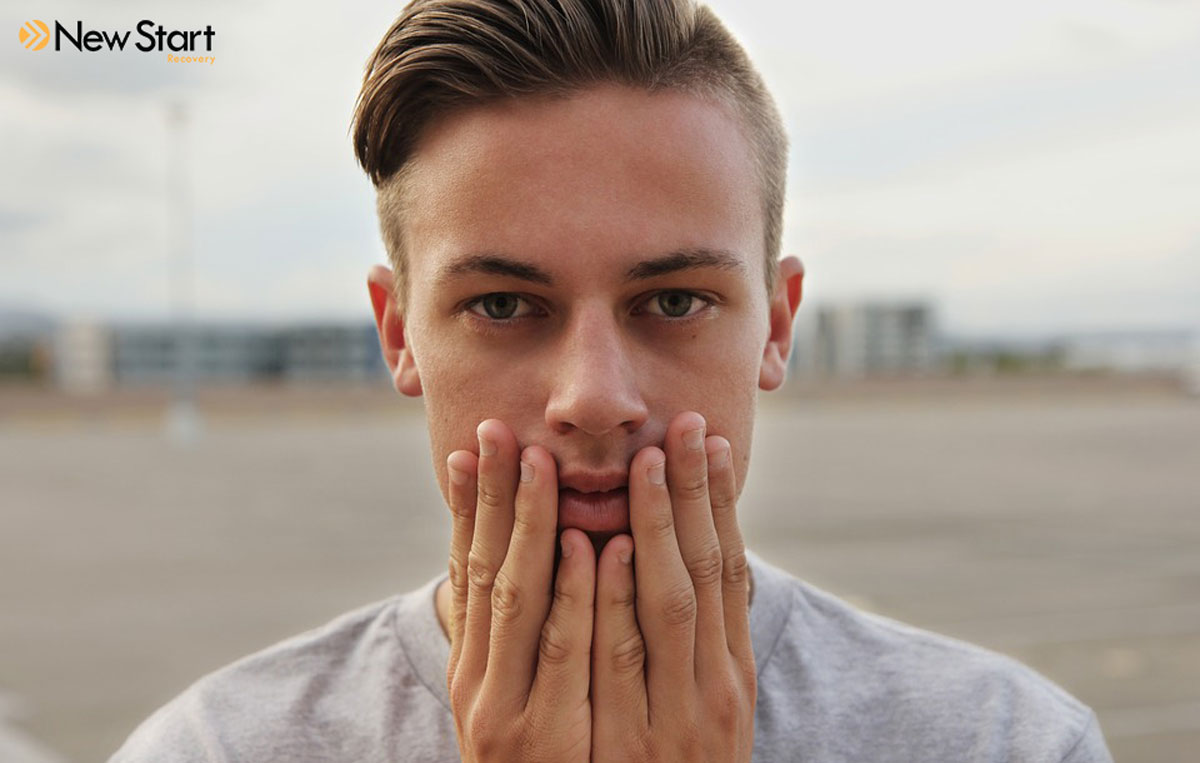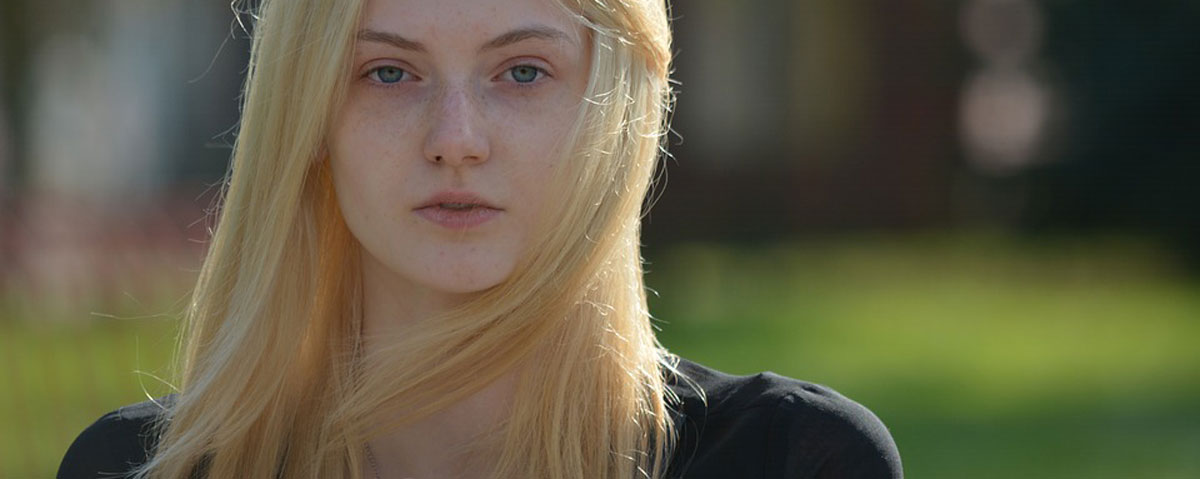Growing up, I would notice members of my dad’s side of the family silently – and occasionally audibly – assessing me and attributing any shortcomings, claims of strife, and disappointments to my mom’s alcoholism. And I admit that I (like many other adult children of addicts) am also guilty of blaming some of my follies on my mom’s disease. Sometimes it’s true. Addiction is a family disease, after all. It’s not just the addict who’s affected by the insidious grip of addiction. Spouses, children, parents, siblings, extended family members, friends, and other loved ones can all be deeply affected by an addict’s disease.
 But that doesn’t mean that we’re completely damaged because of it.
But that doesn’t mean that we’re completely damaged because of it.
But there is a plethora of misconceptions about the adult children of addicts as well. Being affected does not mean we are infected (either with the disease itself or the other inevitable shortcomings because of that disease).
Myths About the Adult Children of Addicts:
1. We Will Become Addicts Too
Genetics do play a role in the development of addiction. The National Council on Alcoholism and Drug Dependence explains that genetics make up 50% of the risk for addiction. However, that risk varies depending on a person’s relationship to the addict. For example, studies on addiction between identical twins show that if one twin struggles with addiction, the other twin is very likely to develop an addiction as well. This is interesting because identical twins share 100% of their DNA. However, the genetic relationship between parent and child is only 50%. So, the likelihood that the child of an addict will develop an addiction is significantly lower. But it is still present.
However, the children of addicts – especially as they age and mature – have the unfortunate advantage of seeing first-hand what addiction can do to a person. Even if they were young during the worst of their parent’s addiction, children are still incredibly observant and intuitive. They’ll likely carry what they’ve learned about the damage addiction can do (something that many people who don’t have that first-hand experience with the disease don’t fully understand) into adulthood. That experience and knowledge sets them up to make better choices and learn ways to cope with their risk. Even with that higher risk percentage due to genetics, a child is not doomed to follow in his parent’s footsteps.
2. We’re Screwed for the Future
People commonly assume that the children of addicts will grow up to be deviant, depressed, and misunderstood adults, even if they don’t become addicts too. This is not at all true. What is true is that the adult children of addicts don’t have a very good sense of what “normal” is. But then again, normal is a completely subjective term. The children of addicts do grow up in chaos. An addict puts their drug/drink of choice first in virtually all situations, which causes their children to suffer. Whether a parent was in a continuous state of drunkenness, funneled the family’s income out into their drug use, or needed to be high to feel normal or happy, the home life for an addict and their family is pure chaos.
However, growing up in chaos doesn’t mean that a child will look for or gravitate towards that same chaos in adulthood.
It’s very likely that the chaos of their childhood will drive the adult children of addicts to seek control and structure in their adult lives instead. They’ll crave a sense of direction and be able to make plans for themselves in place of what they lost in childhood. Again, a child is not doomed because of his parents. He is his own person who learned some very hard facts of life. But, if anything, that chaos, confusion, and hurt turns into the realization that life can be taken and destroyed very easily. Chances are most adult children of addicts are out there making moves and stepping forward rather than following down the same dark and dangerous path their parents tread down.
3. We Can’t Heal Unless Our Parents Do First
Recovery does help mend relationships. But that doesn’t mean that those who absorbed collateral damage from an addict’s disease can’t heal and grow stronger outside of the addict’s recovery. The damage addiction creates is all related to that addiction (obviously). But the loved ones of addicts aren’t actually battling addiction themselves. So, they have the potential to heal some of that damage without the addict’s help.
Say, for example, the adult child of an addict struggles with codependency as a result of her parent’s addiction. She learned in childhood to be the adult and excuse and take care of her parent. She now carries those codependent behaviors as an adult. But she can also learn to treat her own codependency, go to support groups, or even see a mental health professional to help her heal. All of this can still be done regardless of whether the parent is in recovery or still deep in their addiction.
Codependency isn’t the only affliction children and other loved ones of addicts suffer from. It’s also not the only thing that can be healed even before the addict gets help. It’s important for the loved ones of addicts – especially children – to step back and observe themselves as people outside of their parent’s struggles in order to make healing possible.
4. We’ll Be Fine After Our Parents Get Help
Yes, it is true that seeing your parent heal themself through recovery will also help heal some of the wounds that the adult children of those addicts carry. Especially because recovering addicts will learn how their addiction affected others and gain tools to mend those relationships, helping others to heal. But that doesn’t mean all the damage is reversed once an addict gets help. There will always be residual damage (of varying degrees depending on the person) for the children of addicts. There are many adult children who still go to Al-Anon meetings or find new ways to heal themselves years into their parents’ recovery. The effects of addiction are strong and can’t be fixed solely by this mere romanticized image of recovery.
5. You Can Tell Us Apart from the Crowd
The reason you know someone is the child of an addict is either because you know their story personally, you know their parent, or they told you. But it’s virtually impossible to meet someone and immediately label them as the adult child of an addict. Many people mistake their acquired knowledge for telltale signs. And unfortunately, that leads to labeling, discrimination, and stigmatization… even if you don’t mean it to.
The adult children of addicts are people too. They hold jobs, have families, set goals, go to the gym, splurge on Starbucks in the mornings, watch Rom-Coms, scoff at blatant ignorance, take Harry Potter house quizzes when they’re bored, and just generally live their lives like everyone else. They may carry some damage with them from their childhood. But you won’t be able to see that or tell them apart from everyone else unless you spend an extended amount of time with them or they explicitly tell you about their parents’ struggles.

I don’t fault my family for believing some of these myths or showing little signs of judgment as a result of my mom’s alcoholism. They also showered me with love and pride, both of which outweighed any judgment. But it’s also not uncommon for the adult children of addicts to be misunderstood and labeled accordingly. Yes, the adult children of addicts are deeply affected by their parents’ addictions and some may develop their own addictions. But it’s important that we see these people as people in and of themselves, not just children of addicts.
If you, a parent, or another loved one is struggling with addiction, don’t be afraid to reach out for help. Call us at 855-737-7363 for a free and confidential assessment or talk to us on our live chat.

